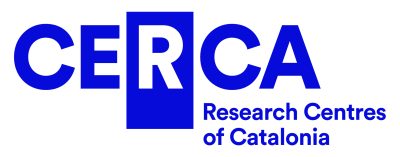The Catalan Institute of Classical Archaeology (ICAC) is a public centre for classical archaeology research established by the Government of Catalonia and the Rovira i Virgili University, with the participation of the Inter-University Council of Catalonia. Its purpose is to research and disseminate Classical civilisation and culture and offer advanced training to researchers.
The Institute undertakes its task based on collaboration and synergies with universities and research institutions in Catalonia working in the same field. Its aim is to become an international scientific benchmark in this area. As a research centre, it has established investigative lines and programmes and employs research staff for this purpose.
Its area of knowledge is Classical archaeology in the widest possible sense, both geographically (the Mediterranean Arc and the area in which the classical cultures developed) and chronologically (encompassing the Greek and Roman civilisations and other peoples with direct links to them).
The study of classical archaeology has a long tradition in Catalonia. Moreover, it has made important progress in recent years, thanks to increasing public awareness of the need to safeguard our archaeological heritage and the application of new legislation on cultural heritage that has made the scientific study of numerous archaeological sites both necessary and possible.
Another factor is that Catalonia is rich in archaeological remains from antiquity. This is due largely to the important roles played by the Greek colonisation and the political and cultural expansion of Rome to the west, as well as the cultural impact these had on the native populations. Logically, such archaeological wealth requires the development of suitable research tasks for their study, interpretation and cultural exploitation.
The ICAC is a consortium formed by the Government of Catalonia and the Rovira i Virgili University. Its statutes were published in the Official Gazette of the Government of Catalonia, Number3.143 on 19 May 2000. The Institute is a public legal body of institutional nature and has its own legal status for the purposes of carrying out its objectives.
It has the status of a research centre in Catalonia and is recognized as a CERCA centre, governed by the legal regime established in Chapter IV, Heading II of the Fiscal and Financial Measures Act 7/2011 of 27 July, in the Eighth Additional Provision of this Act, as well as the rest of the specific regulations decreed by the Government of Catalonia in the area of research.
The headquarters of the Catalan Institute of Classical Archaeology is in Tarragona, in a building formerly occupied by the Fòrum Market, which has been ceded by the Rovira i Virgili University and Tarragona City Council to the city’s University Campus. In this premises of more of 1,000 m2 the Institute has offices for research and administrative staff, a documentation centre and library, rooms for grant holders and seminars, a conference hall, stores, workshops and laboratories equipped for the efficient organisation of the research tasks.
Tarragona’s archaeological heritage is of huge importance, as the city is built on the site of ancient Tarraco, the splendid capital of Hispania Citerior, and was designated a UNESCO World Heritage Site in the year 2000. It is, therefore, the ideal setting for the Institute to carry out its tasks. The monumental buildings preserved in situ; the numerous important archaeological finds held in its centenarian museum, the National Archaeological Museum of Tarragona, many of which also have great artistic value; and the potential offered by the archaeological sites yet to be explored, make the city an extraordinary archaeological research laboratory.








